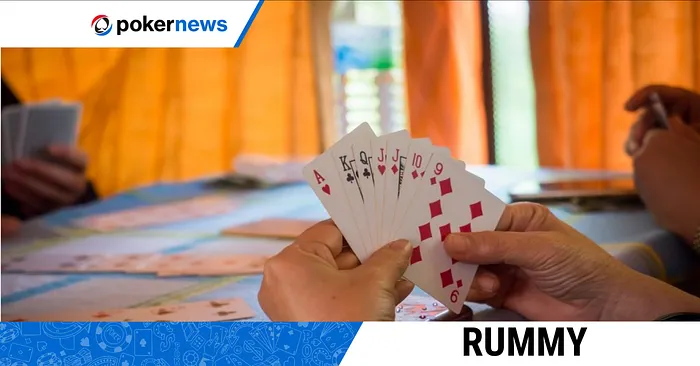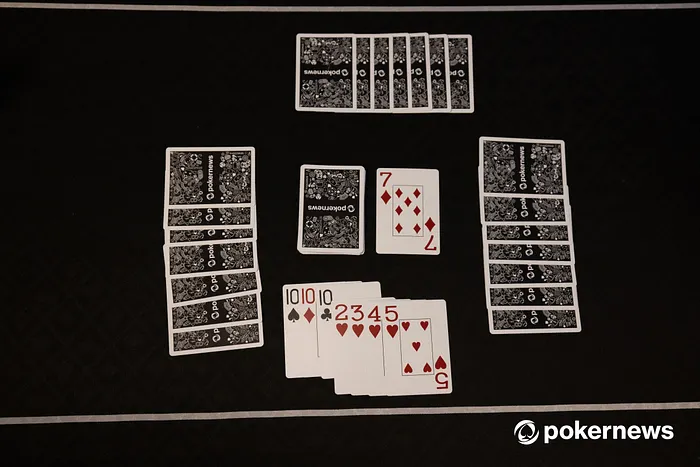Rummy Tournaments - Best Tournaments and Strategies

PokerNews welcomes you to the exhilarating streets of Rummy tournaments, where skill meets competition in a dynamic card-playing environment.
Rummy tournaments have surged in popularity, offering players diverse formats to showcase their strategic prowess. From online platforms to local events, these tournaments provide a thrilling arena for participants to test their card-playing mettle.
Join us as we explore the exciting world of Rummy competitions, delving into the rise in popularity and the myriad formats that offer both challenge and excitement to players seeking the ultimate card game experience.
Best Rummy Tournaments to Play
In the vibrant landscape of Rummy tournaments, several stand out as the best in the business, offering both seasoned and budding players a chance to showcase their skills and compete for substantial prizes. Prestigious competitions such as the World Rummy Tournament, Indian Rummy Challenge, and Rummy Premier League consistently draw top talent, providing a platform for players to test their mettle on a global stage.
These tournaments not only offer substantial cash prizes but also bring together a community of passionate Rummy enthusiasts. Recurring events, such as daily or weekly tournaments on popular online platforms, provide players with regular opportunities to engage in competitive play and hone their strategies.
Special events, often tied to festive occasions or milestone celebrations, elevate the excitement, bringing additional challenges and larger prize pools. Whether you're a competitive veteran or a newcomer seeking to make a mark, participating in the best Rummy tournaments not only offers a chance at lucrative rewards but also immerses you in the thrilling and competitive world of Rummy at its finest.

Best Strategy for Rummy Tournaments
Successfully navigating Rummy tournaments demands a strategic approach that adapts to the distinct stages and formats of competitive play. In the early stages, focus on building a solid foundation by forming essential sets and runs while keeping an eye on opponents' discards. As the tournament progresses, adaptability becomes key; be prepared to adjust strategies based on changing dynamics and opponents' playing styles. Maximizing points is crucial for tournament success, so consider laying off cards strategically to minimize unmelded points in your hand.
Managing risks intelligently is another pivotal aspect of tournament strategy. While taking calculated risks can lead to significant point gains, it's essential to assess the potential drawbacks. Timely declarations can secure points but may expose your strategy to opponents. Balance is key, and understanding when to play conservatively or take strategic risks is a hallmark of successful tournament play.
Furthermore, mastering the art of observation is vital. Pay attention to opponents' playing patterns, adapt to the varying skill levels of participants, and capitalize on their mistakes. In tournament settings, players encounter a diverse range of opponents, each presenting a unique challenge.
Ultimately, the best strategy for Rummy tournaments combines adaptability, risk management, and a keen understanding of the tournament's evolving dynamics. Whether you're participating in high-stakes competitions or regular online tournaments, honing these skills will enhance your chances of success and elevate your overall performance in the thrilling world of Rummy tournaments.
Best Practices for Rummy Tournament Success
Achieving success in Rummy tournaments requires a combination of preparation, strategic thinking, and a composed approach to gameplay. To enhance your tournament performance, start by familiarizing yourself with the rules and formats of the specific tournament you're entering. Practice regularly to sharpen your skills and gain confidence in your ability to adapt to different scenarios.
Strategic thinking is paramount in tournament play. Instead of solely focusing on your hand, observe opponents' discards and adapt your strategy based on the evolving dynamics of the game. Stay composed even in challenging situations, avoiding impulsive decisions that may lead to unnecessary risks.
Balancing aggression and caution is a key practice for optimal tournament play. While it's essential to be proactive in forming sets and runs, carefully assess the risks associated with each move. Calculate the potential benefits of aggressive play against the possible drawbacks to make informed decisions.
Furthermore, consider managing your time effectively during tournaments. Be mindful of the clock, especially in timed competitions, to ensure that you make each move deliberately without rushing.
By incorporating these best practices into your approach, you can enhance your overall performance and increase your chances of success in the competitive and exhilarating world of Rummy tournaments.
Quick Guide - Top 3 Tips for Dominating Rummy Tournaments
Mastering Rummy tournaments demands a strategic mindset. First and foremost, prioritize efficient card management. Emphasize melding cards promptly to minimize unmelded points and gain an early advantage.
Second, adaptability is key. Tailor your strategy based on opponents' playing styles and the evolving dynamics of the tournament. Third, strike a balance between aggression and caution. While proactive play is essential, carefully assess the risks associated with each move. Fourth, maintain composure. Avoid impulsive decisions, stay focused, and think strategically, even in challenging situations. Lastly, regular practice is crucial for success.
Sharpen your skills, familiarize yourself with different scenarios, and build confidence in competitive settings. By incorporating these key tips into your tournament approach, you'll enhance your overall performance and increase your chances of dominating the competitive world of Rummy.
See all our other Rummy guides!
- How to Play Rummy
- Exploring Free Rummy
- Where to Play Rummy for Real Money
- Mastering Rummy Strategy
- How to Keep Score in Rummy
FAQs - Rummy Tournaments
How do I find and join the best Rummy tournaments online?
To discover and participate in top-notch online Rummy tournaments, explore reputable gaming platforms and dedicated Rummy websites. Keep an eye on announcements, community forums, and social media channels for updates on upcoming tournaments. Most platforms feature a straightforward registration process, allowing you to easily join the competition and showcase your Rummy skills.
What strategies work best in the early stages of a Rummy tournament?
In the early stages of a Rummy tournament, focus on building a strong foundation by forming essential sets and runs. Be observant of opponents' discards and adapt your strategy based on their playing styles. Prioritize melding to minimize unmelded points in your hand, securing an advantageous position as the tournament progresses.
Are there specific tournament formats that are more suitable for beginners?
Beginners can ease into Rummy tournaments by participating in formats with lower complexity, such as single-round tournaments or those with fewer participants. These formats provide a less intimidating environment, allowing newcomers to familiarize themselves with competitive play and gradually enhance their skills.
How can I handle pressure situations in the final rounds of a Rummy tournament?
Handling pressure in the final rounds of a Rummy tournament requires maintaining composure and sticking to your strategic approach. Focus on efficient card management, stay aware of opponents' moves, and avoid impulsive decisions. Strategic thinking and confidence in your skills will help you navigate pressure situations successfully.
Do Rummy tournaments have entry fees, and how are the prizes distributed?
Rummy tournaments often have entry fees that contribute to the overall prize pool. Entry fees can vary based on the tournament's scale and rewards. Prizes are typically distributed among the top-performing players, with larger shares for higher-ranking participants. Familiarize yourself with the specific tournament rules to understand the entry fees and prize distribution structure.
